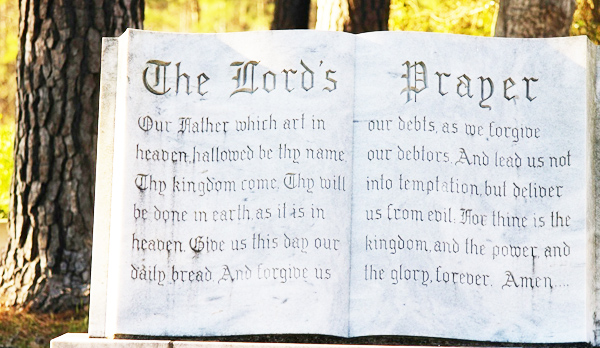No one who abides in him keeps on sinning; no one who keeps on sinning has either seen him or known him (1 John 3:6). This is a sobering passage. It is meant to be. However, it should not be a passage that causes the Christian believer to despair. John is not condemning the one who is seeking to overcome sin, but the one who habitually gives into sin without repenting. John purposefully describes here the one who is (or is not) continually sinning (as is evident from the “linear present”, or continuing action, of the verbs in the original
What Is Salvation, and Where Is It Found?
For by grace you have been saved through faith. And this is not your own doing; it is the gift of God (Ephesians 2:8). Salvation means “to deliver” someone out of danger. Salvation, especially in the Bible, implies then that people need to be saved. It also implies that someone is able and willing to save the person who needs to be saved. The Bible teaches that Jesus Christ is the only source of true salvation for any human being.
What Is Sanctification?
If you are a believer, then you are “sanctified”, you are a saint (same root word). The word sanctification means “to set apart for a particular purpose.” There is no ceremonial act—not even baptism or the Lord’s Supper—which is needed in order to be saved, or sanctified. This may be confusing, however, because the Bible often talks about, even exhorts us to, sanctification as a goal. This is because there is more than one aspect to God’s setting us apart; he sets apart in different ways and for different purposes.
Test Yourself, but Trust In Jesus
Examine yourselves, to see whether you are in the faith. Test yourselves (2 Corinthians 13:5). Paul’s exhortation to be regularly testing the sincerity and purity of your own faith is not given in order to make you doubt your salvation every other day. Faith in Christ is exactly that: faith in Jesus’ finished work, not in our own faithfulness. However, we are to be regularly doing the hard work of honest self-appraisal.
Jesus Says, “I Am the Door”
I am the door. If anyone enters by me, he will be saved and will go in and out and find pasture (John 10:9). It is easy and common to skip over this reference of Jesus to himself as the door and jump straight to him as the shepherd (also in this passage in John 10). But pause and consider that Jesus says he is not only the shepherd of his sheep but he is also the door. In other words, Jesus is not only the shepherd of the sheep, but he is also the way through which he leads
Is the History of the Bible Important?
Unlike any other of the religions of the world, Christianity is uniquely and entirely dependent upon the historical veracity of its holy book, the Bible. The very narratives and prophecies which make up the majority of its pages, rather than being simply a complement to, are the vitals of what Christianity contends as a religion. If the historicity of Adam and Eve, Moses, Abraham, Jesus, and others are not true, then there is nothing on which to found the rest of the Christian teachings.
Location, Location, Location
There is therefore now no condemnation for those who are in Christ Jesus (Romans 8:1). There is a well-known real estate maxim that lists the three most important characteristics of any property: “Location, location, and location.” This famous real estate maxim holds true in the Bible, as well. In the Old Testament in particular leaving Israel is seen as departing from God, and returning to Israel represents one’s returning to God.
Crushed For Our Iniquities
He was pierced for our transgressions; he was crushed for our iniquities; upon him was the chastisement that brought us peace, and with his wounds we are healed (Isaiah 53:5). At the heart of the gospel — at the heart of what happened on the cross to Jesus Christ — is substitution. It is Jesus taking the place, and therefore the punishment, of sinners who deserved God’s wrath. At the cross, Jesus got what we deserved. Isaiah 53:5 gives us this clear insight into Jesus’ death.
Why Was the Cross Necessary, Given God’s Omnipotence?
Many people misunderstand the truth of God’s omnipotence — the fact that he has all power. So one might sincerely wonder why the cross of Jesus Christ was necessary. Why didn’t God just waive his omnipotent “wand” and make everything okay without his Son having to die? The key is to remember that, while God has the power to do anything he wishes, what God wants to do is always in accord with the rest of his attributes and character.
Is the Bible inerrant (and what does that mean)?
Although the writing of the Bible spanned some 1,500 years and now even the most recent book of the Bible is almost 2,000 years old, the unashamed contention of historic Christianity is that the Bible is error-free from start to finish. The Bible makes numerous and uncompromising claims as to its own authenticity and divine origin (over 3,800 such claims).
How Can I Read My Bible Correctly?
Whether we are consciously aware of it or not, interpretation is part of almost every human’s daily life. Communication would not be possible without a common understanding and means of interpreting. However, even with years of practice, we can all misjudge or misinterpret someone else’s—even our own spouse’s—words, actions, or facial expressions. This danger of misinterpretation is even greater when we come to the Bible.
What Is Perspicacity (And Why Does It Matter)?
The doctrine of the “perspicuity of Scripture” is a well-known and important teaching within the Christian faith. This doctrine refers to the fact that the Bible is clear, that it communicates perfectly. All scripture is profitable (2 Timothy 3:16). The Bible can be understood by anyone, barring mental handicaps (2 Timothy 3:15). This doesn’t mean it is easy to correctly understand; rather, the Bible requires careful, thoughtful study (2 Peter 3:16). Equally vital as the doctrine of Scripture’s perspicuity, however, is the balancing consideration of the “perspicacity” of the reader.
Lead Us Not Into Temptation
Lead us not into temptation (Luke 11:4). (Today’s is the last in a brief series of meditations on the Lord’s Prayer.) James says no one can say God has tempted him; this request, then, is for God to keep us from situations where we might fall. It is a recognition of the dangerous, bait-riddled, sin-inducing nature of this world. If love of money doesn’t get us, perhaps the temptation to fit in with the crowd will.
Forgive Our Sins
Forgive us our sins (Luke 11:4). (We are continuing in our brief series of meditations on the Lord’s Prayer.) Jesus teaches us to pray daily (see previous post) for the forgiveness of our sins, assuming (as we ought to) that we have strayed from the mark each day. Sins are sins — they are not merely mistakes, flaws, personality, or “my truth versus your truth.” And every sin is against God ultimately, and so must be dealt with before God (Psalm 51:4)
Give Us Our Daily Bread
Give us each day our daily bread (Luke 11:3). (We continue today in our brief series on the Lord’s Prayer.) The opening requests that Jesus models for us are about God — so like God they are majestic, huge, and inspiring. A lesson Jesus clearly means for us to learn in this prayer is that God comes first, and only when God is first does everything else matter or fall into place. However, the following pleas that Jesus himself places in our mouth are about us — and like us they are daily, mundane, unspectacular.












